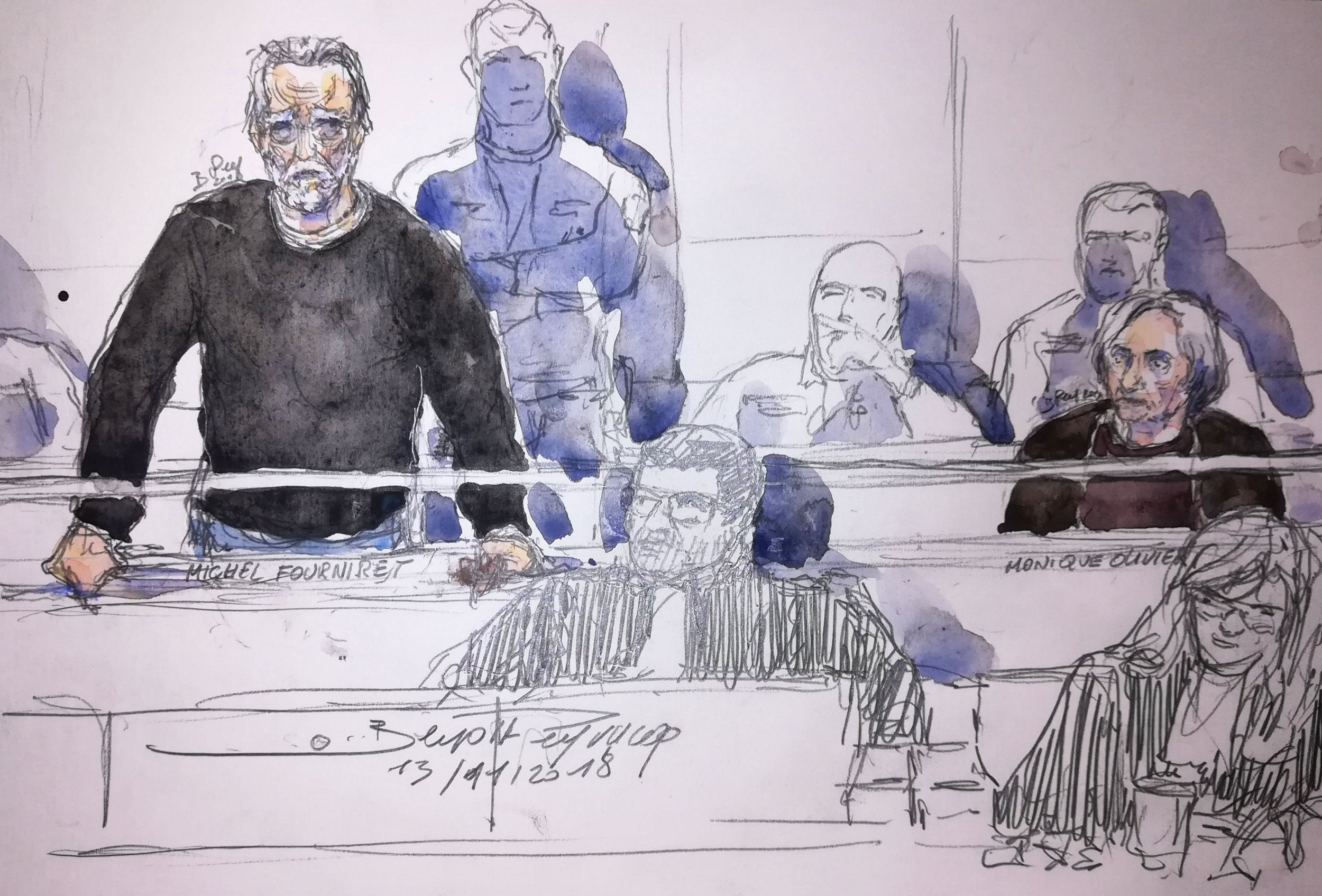Serial killer nicknamed the ‘Ogre of the Ardennes’ gets another life sentence as he awaits trial for murder of British student
Michel Fourniret serving life for rape and murder of seven girls and young women

Your support helps us to tell the story
From reproductive rights to climate change to Big Tech, The Independent is on the ground when the story is developing. Whether it's investigating the financials of Elon Musk's pro-Trump PAC or producing our latest documentary, 'The A Word', which shines a light on the American women fighting for reproductive rights, we know how important it is to parse out the facts from the messaging.
At such a critical moment in US history, we need reporters on the ground. Your donation allows us to keep sending journalists to speak to both sides of the story.
The Independent is trusted by Americans across the entire political spectrum. And unlike many other quality news outlets, we choose not to lock Americans out of our reporting and analysis with paywalls. We believe quality journalism should be available to everyone, paid for by those who can afford it.
Your support makes all the difference.“Where is the body?” “What did you did with her after you strangled her?” “Where did you bury her?”
These were the questions that gripped the latest murder trial of the French serial killer, dubbed the Ogre of the Ardennes.
Thirty years after the killing, would Michel Fourniret finally tell the victim’s family and her husband, who sat opposite him in the courtroom in Versailles, where she lay?
It took Fourniret, who with his ex-wife Monique Olivier is already serving life for the rape and murder of seven girls and young women they killed in a “virgin-hunting” spree, nearly three decades to finally confess to the murder of British student Joanna Parrish.
Parrish’s naked body was found the day after she was reported missing in May 1990 while she was living in the Burgundy region during a year abroad.
Fourniret had long been suspected of the 20-year-old’s rape and murder but it was only earlier this year that he told police he was the culprit. That case could come to trial as early as next year.
The verdict in Fourniret and Olivier’s current trial in Versailles, for the 1988 murder of 30-year-old Farida Hammiche, was a foregone conclusion, given that both had confessed to the crime.
So the focus was on how the French equivalent of Britain’s Fred and Rosemary West went about their grim business, the buried gangsters’ gold, the betrayed friend and the chateau purchased with ill-gotten gains.
But above all it was about trying to make the 76-year-old serial killer reveal how he had disposed of Hammiche’s corpse.

Fourniret, whose glasses, white hair and beard would let him easily pass for a pastor or university professor, wore faded jeans and a black jumper tucked into his trousers as he calmly watched the proceedings that culminated late on Friday in another life sentence for him and 20 years for his wife.
Monique Olivier, now 70, who for years helped him kidnap girls and then watched through a one-way mirror as he raped and killed them, sometimes with a screwdriver, sat awkwardly on the same court bench, never speaking to her ex-husband and rarely even looking at him.
The court heard how Fourniret befriended the career criminal Jean-Pierre Hellegouarch, who was Hammiche’s husband, when the pair briefly shared a cell in 1984, when the former was serving time for sexual assault and the latter for robbery.
Hellegouarch got wind of where a notorious band of Paris bank robbers, nicknamed the Gang des Postiches (Wigs Gang) because of the hairpieces they wore when on the job, had buried 20 kilos of gold bars and coins.
He shared his secret with his new friend, who was released in 1987 and then married Olivier, and arranged for Fourniret to go with his wife, Hammiche, to the Paris cemetery where the gold was buried next to a grave.
Hellegouarch said he could have a cut and Hammiche would keep the rest until his own release.
But once the “couple diabolique,” as the French press have dubbed Fourniret and his wife, got their hands on the gold, it was the end for Hammiche.
Fourniret calmly told the court he could remember what her last words were – “Michel, don’t kill me like this” – before he strangled and then buried her, later leaving her car at Orly airport to make it look as though she had left the country.
But he has always refused to reveal the location of her improvised grave.

“I would just like to know where Farida’s body is, I would like to give her a proper grave,” Hellegouarch, now a burly, shaven-headed 75-year-old dressed in a green combat jacket and jeans, told the court.
“If he is rotten to the core that is his problem. But if he has an ounce of courage then he should say where she is,” he said.
Fourniret looked as though he was about to say something, but the presiding judge said it was not yet his turn to speak.
I would just like to know where Farida’s body is, I would like to give her a proper grave
Fourniret’s treachery towards Hellegouarch included him pretending to be worried about Hammiche’s disappearance and helping look for her, meeting his old friend at the prison gate when he was finally released and even naming one of his sons after him.
It was only years later when Hellegouarch heard Fourniret had bought himself a chateau in the French Ardennes that he realised he had been had.
In 1992, he decided to take justice into his own hands. He arrived, armed, at the chateau, but Fourniret spotted him in time and managed to escape, abandoning his wife and baby.
Hellegouarch later turned to the authorities to ask them to investigate. He claims it was because of his criminal background that they took so long – three decades – to bring the case to court.
Fourniret, who the Versailles court was told spends his time in prison playing chess with himself and reading Gogol and Dostoyevsky, was asked again and again during the trial where the body was.
In his precise and pedantic French, he sometimes claimed age had made him forgetful, but often seemed to be playing with the court. And, sometimes, the harmless-looking old man snarled and, briefly, the court could see the Ogre of the Ardennes.
“You told us that you hid the body in a sand quarry and then you said you don’t remember [what you did with it], Mr Fourniret. So, which is it?” asked Didier Seban, a lawyer for the victim’s family.
“Both,” answered the accused.
Join our commenting forum
Join thought-provoking conversations, follow other Independent readers and see their replies
Comments